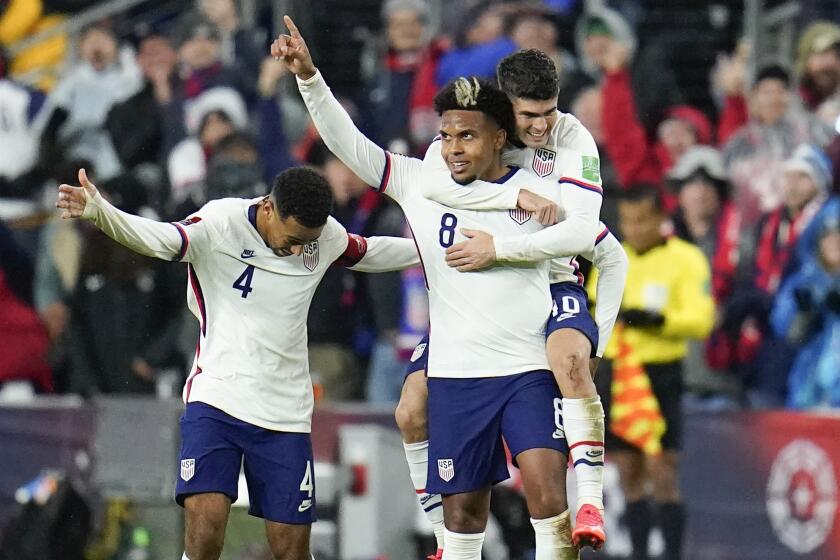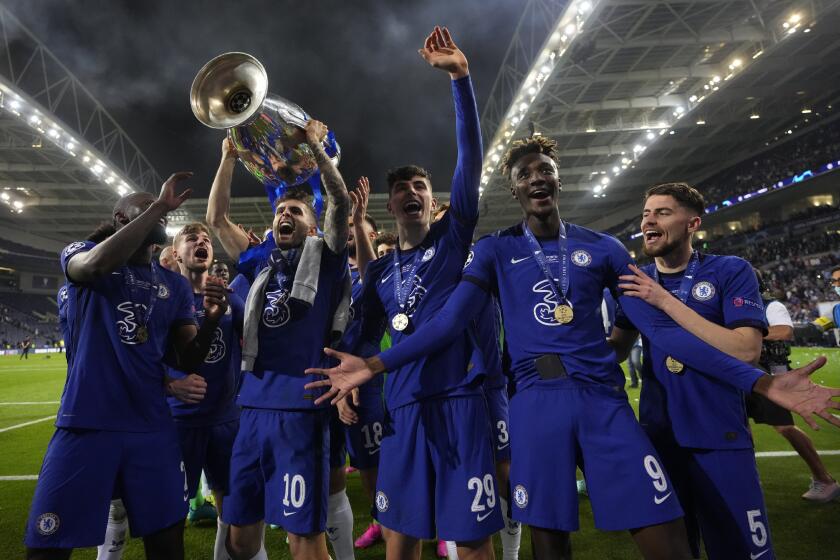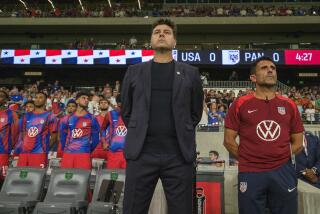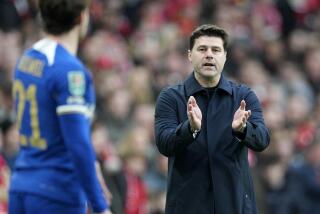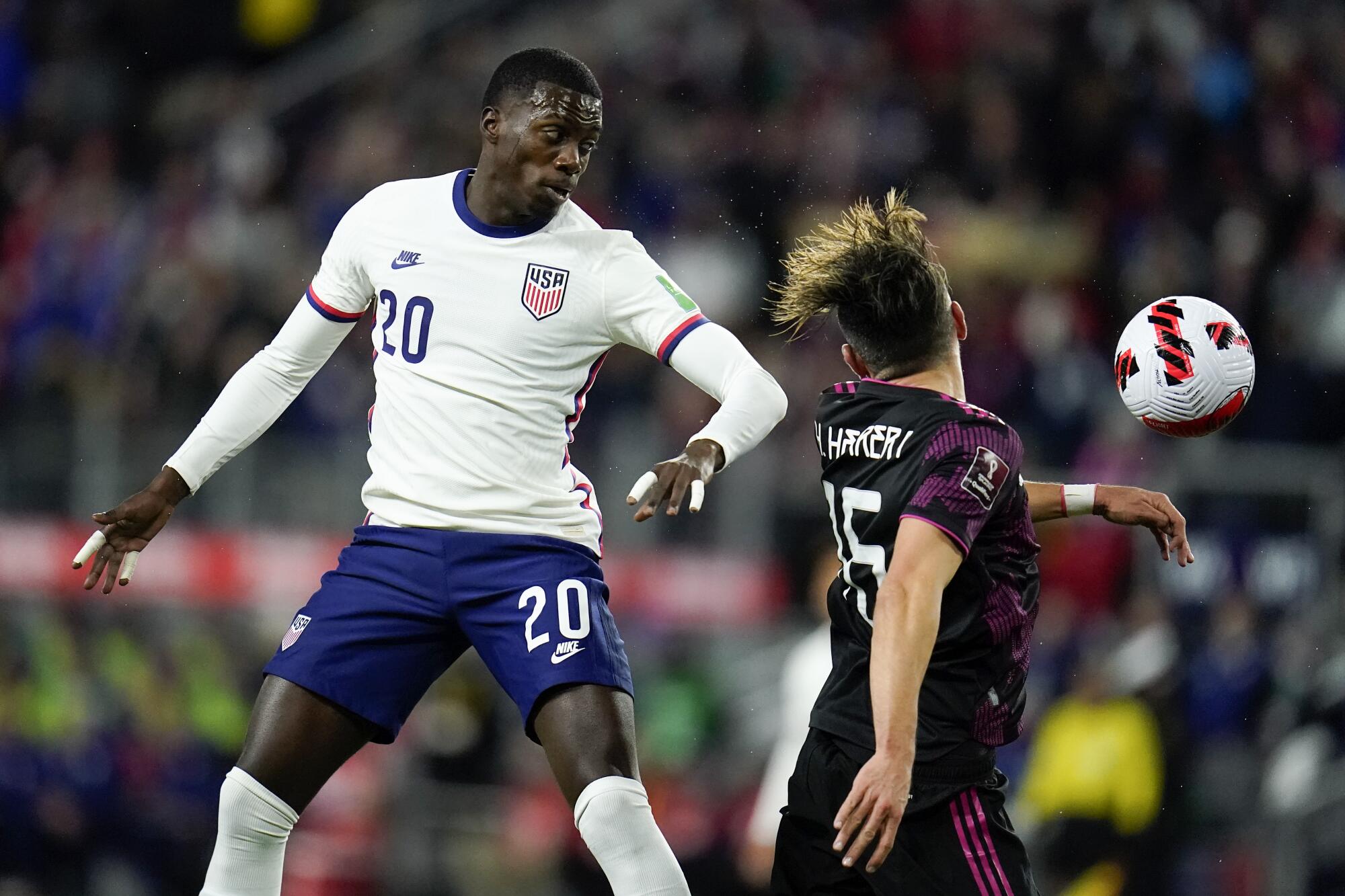
- Share via
KINGSTON, Jamaica — Shortly after Tim Weah woke up Saturday morning, a day after the U.S. national team’s 2-0 victory over Mexico in World Cup qualifying, he found a text message waiting for him.
“I just wanted to write to you to tell you, you were really good yesterday and I’m so proud of how you have been moving along in your career,” it began. “Your moment has come and you’ve worked hard for this and I’m pleased for you.”
The writer was Dave Sarachan, the coach who gave Weah his first cap with the national team, then watched him score his first goal and collect his first assist. And Weah wasn’t the only one. In Sarachan’s 12 months as interim coach of the U.S. team, he gave a record 23 players — including Weston McKennie, Tyler Adams, Zack Steffen and Antonee Robinson — their international debuts. Six of those players started against Mexico.
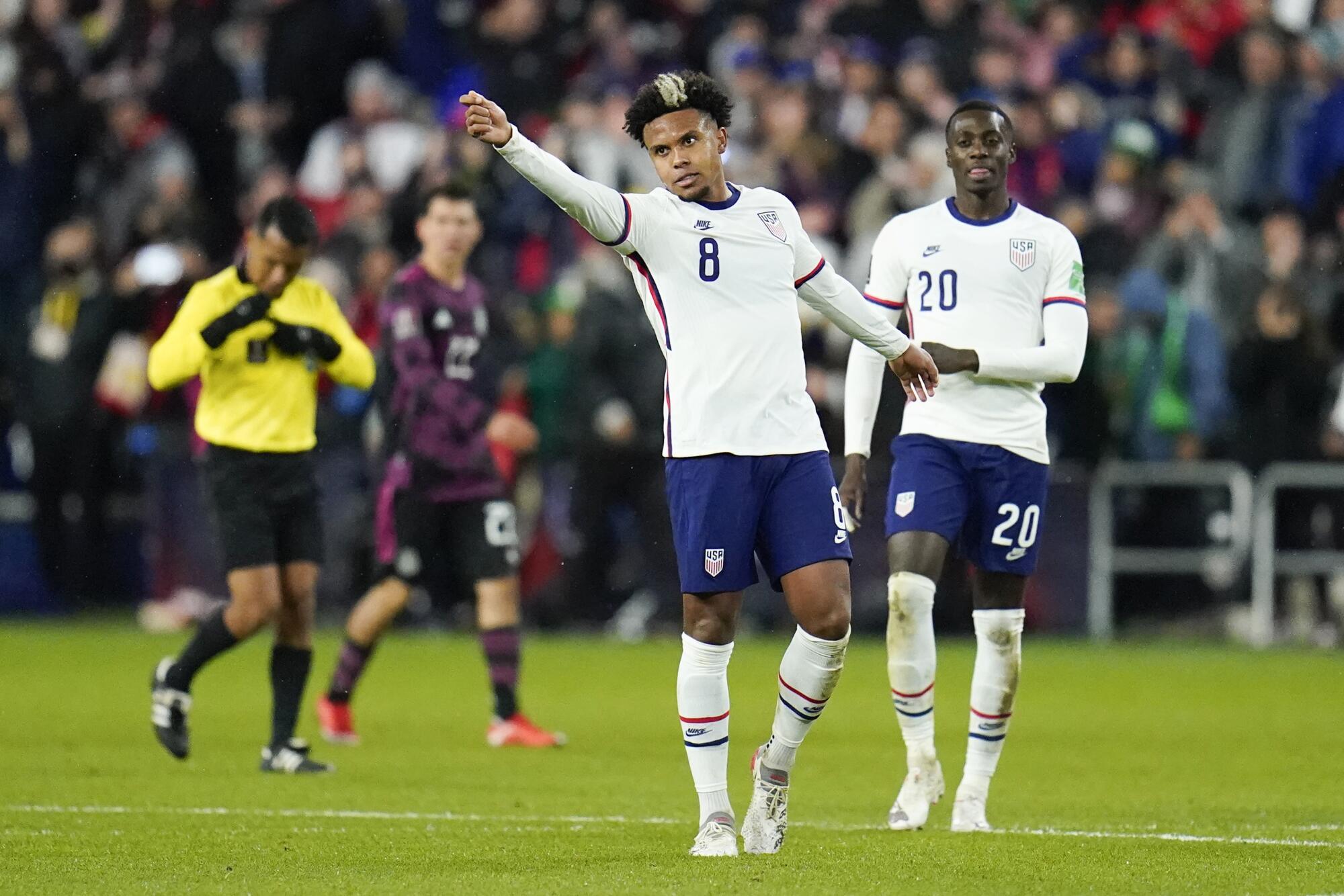
With the exception of Gregg Berhalter, the current coach, few people have done more to shape this national team than Sarachan, who will watch Tuesday’s qualifier against Jamaica from his living room in Omaha, gone if not forgotten.
Which is fine with him.
“I know the work I did with my staff that year,” he said. “It was really almost impossible. And yet, I feel satisfied that we identified many that are now a part of things. That pleases me the most.”
The U.S. goes into Tuesday’s match leading the eight-team World Cup qualifying tournament on goal differential, but it will be missing two big pieces in McKennie, who is suspended because of yellow card accumulation, and defender Miles Robinson, who drew a red card in the Mexico match.
Construction of the road that carried the team here began in 2017, three days after the U.S. failed to qualify for the last World Cup, when Bruce Arena resigned as coach. Sarachan, his top assistant with the Galaxy and the national team, replaced him, inheriting a roster that had grown old and dysfunctional.
Christian Pulisic comes off the bench and scores in the 75th minute to spark a 2-0 win for the USA over Mexico in CONCACAF World Cup qualifying.
But without a World Cup to prepare for, Sarachan was able to rip out the foundation and start over.
“There was no one at U.S. Soccer directing me, saying, ‘Here’s where I think we should go with this,’ ” he remembered. “It was a blank canvas, and honestly it was a no-brainer to begin to get these young guys.
“We’re not Germany or France. We’re the United States. [We’ve] got to rebuild, and we need to see these guys and give them the experience so that down the road, they’re not going to be fazed by stepping on the field in a qualifier.”
They weren’t, with the U.S. climbing to the top of the table despite having 26 players make qualifying debuts in the last two months. The roster Arena used in Trinidad averaged 29½ years of age; the one Berhalter will use Tuesday averages less than 24 years, making it the youngest in U.S. Soccer history.
Compare that with Mexico, a team the U.S. has beaten three times since June. Mexico had the second-oldest team at the 2018 World Cup, and, unlike the U.S., it has tried to rebuild on the fly.
The U.S. and Mexico national soccer federations took different paths to building their rosters. Nations League and World Cup qualifiers will show whether investment in youth worked.
It hasn’t gone well.
In retrospect, missing the World Cup in 2018 created an opportunity for the U.S., just as it did for Italy. The Italians also embarked on a rebuilding project after failing to qualify for Russia, and four years later they won the European Championship while running off a 37-game unbeaten streak.
“You can look at it as a good thing and a bad thing,” Weah said. “It was a good thing because it gave us the sufficient amount of time to bring in new guys and build a new team. Start from the ground back up.
“And that’s what we did.”
The rebuilding wasn’t just to the roster, though. Three months after the loss in Trinidad that eliminated the Americans from reaching the World Cup, Sunil Gulati was replaced as president after 12 years, triggering a transition during which three people would lead the federation over the next 26 months.
“The reboot, changing personnel starting in the executive level all the way down to the team, it had to happen. And the trigger was the failure of going to Russia,” said Sarachan, who is now coach of the Puerto Rican national team. “As much as it was painful, it opened the door for the next cycle.
“It’s never a good thing to miss the World Cup. But I do think that it accelerated the mantra of, ‘OK, change is important, from the top to the bottom.’ ”
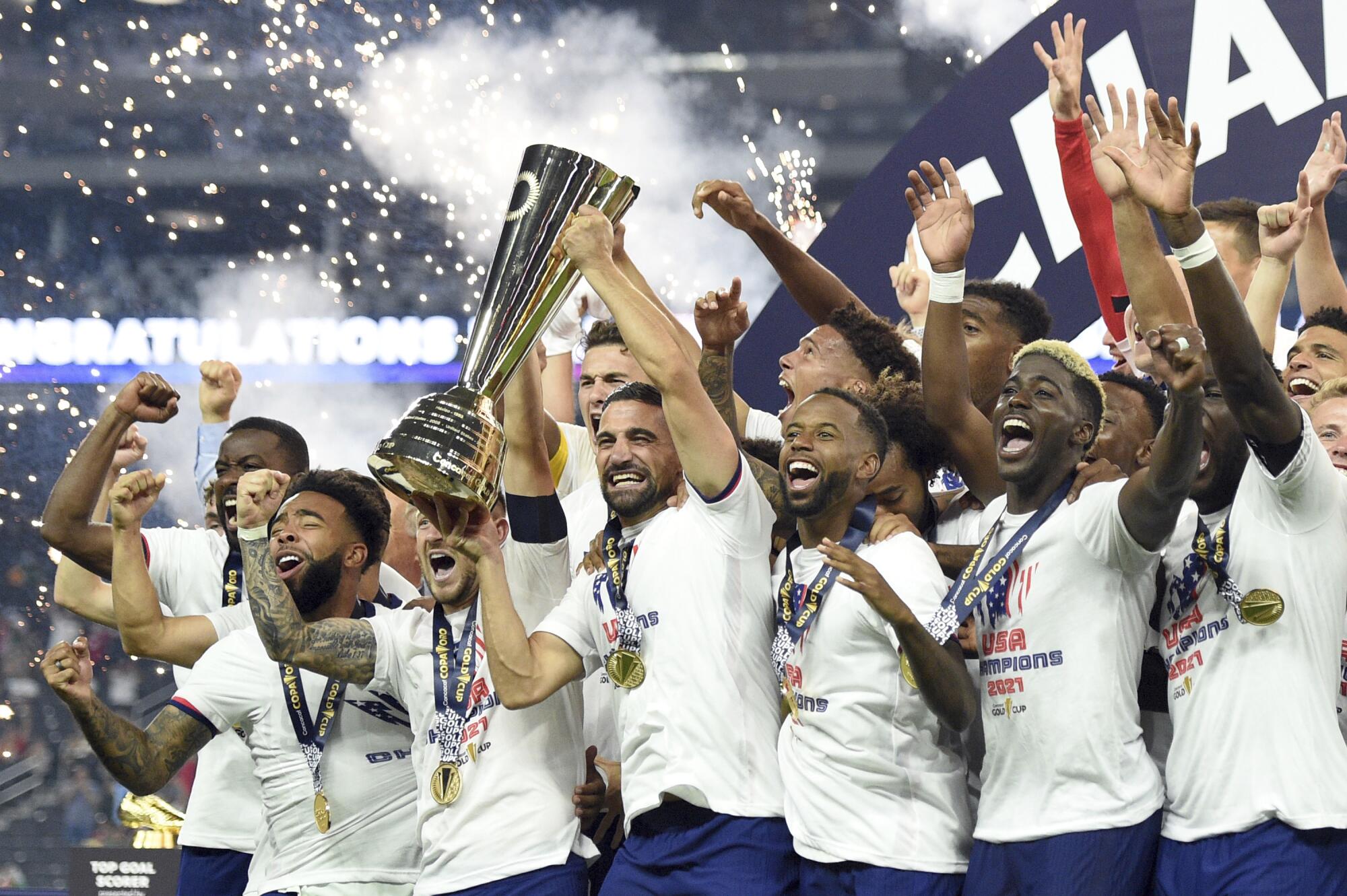
So while Sarachan’s record wasn’t great in his 12 matches in charge — he won three, beating Paraguay, Bolivia and Mexico — the work he did helped the national team rise from the ashes of its worst defeat and might have paved the way for some of its biggest victories. And Berhalter continued that, giving 49 players their international debuts while becoming the fastest coach to 30 wins in U.S. history, going 30-7-5 since replacing Sarachan.
“We’ve come a long way in the last couple of years,” said Christian Pulisic, one of three players remaining from the team that lost in Trinidad. “But that doesn’t mean that it’s time to be complacent and time to think, ‘Oh, we’re the best.’ It’s just about keep it going, really.”
Weah agreed.
“We’re on a great path right now, and the future’s bright,” he said.
A few hours later, he picked up his phone and tapped out a message to the man who set him on that path.
“Thank you so much coach Dave,” he wrote to Sarachan. “I owe it all to you and I will forever be grateful for everything you’ve done for me.”
U.S. Soccer could say the same thing.

